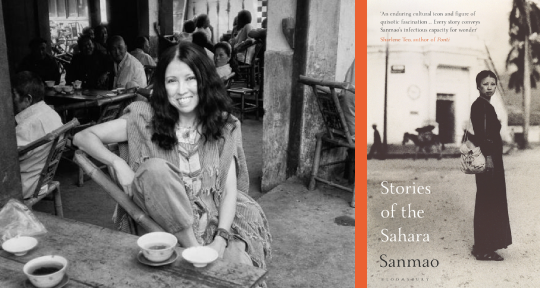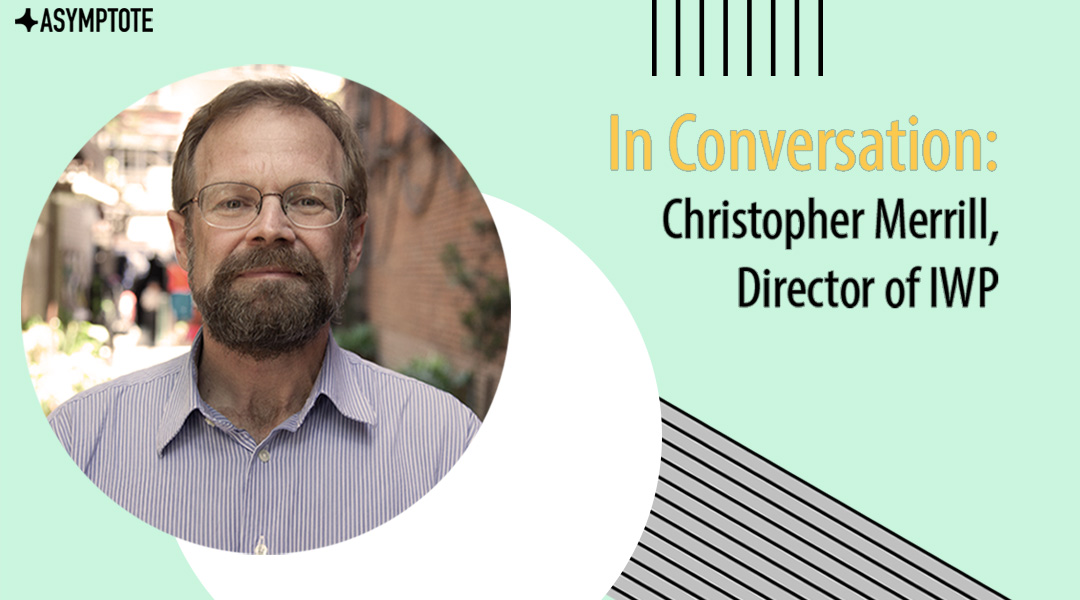I am the poet of the Body and I am the poet of the Soul,
The pleasures of heaven are with me and the pains of hell are
with me,
The first I graft and increase upon myself, the latter I
translate into a new tongue.
—Walt Whitman, “Song of Myself”
This is perhaps the most appropriate introduction to Christopher Merrill, the award-winning poet and translator from Slovenian and Korean who directs the International Writing Program (IWP) at the University of Iowa. Gifted with a style that frequently combines, as Kirkus Reviews called it, “Merrill-the-poet’s gorgeous writing, and Merrill-the-reporter’s sharp eye,” he has risen to greater international prominence in part through his involvement with the U.S. National Commission for UNESCO and extensive cultural diplomacy engagement all over the world.
In his recent memoir Self-Portrait with Dogwood, Merrill writes: “The invention of language made possible what we imagine to comprise human experience, for good or ill—agriculture, warfare, religion, government, poetry, philosophy, art, and science, not to mention the emotions that drive individuals, societies, and civilizations. Long ago, under a tree, we learned to express ourselves in a new key, building structures of meaning word by word, phrase by phrase, alert to the necessities of living, to the varieties of love and grief, to the mysteries of faith, quirks of nature, and consolations of storytelling… The musical possibilities encoded in language expanded our understanding of the worlds without and within, giving birth to poetry—and so much more.”
Claire Jacobson: Can you tell me how you got started writing poetry, and translating, and being involved in the international writing community? Basically, what is the origin story of Christopher Merrill?
Christopher Merrill: A writer’s origin story may change over time, especially if the writer’s life takes many forms, as mine has. Thus at different points along the way I have dated the beginning of my literary vocation to a love affair; a serious illness at the age of twenty-four; working as a war correspondent in the Balkans; making pilgrimages on the Holy Mountain of Athos; and so on. But the most enduring story is that as a teenager in New Jersey I wanted to be a soccer player and a poet: two career paths that did not sit well with my parents—which only enhanced their appeal. When I matriculated at Middlebury College, where I was recruited to play soccer and intended to be a French major, I had the good luck to take a poetry workshop with the novelist Thomas Gavin, who became a lifelong friend; his encouragement inspired me to serve what turned into an unusual literary apprenticeship, which included stints as a graduate student, nurseryman, college soccer coach, caretaker, bookstore clerk, director of writers’ conferences, and freelance journalist. What persists through every job I have held, each of which I viewed as a gift regardless of the pay or working conditions, is my love of reading and writing, which at every turn has helped me to navigate my time here below.
READ MORE…


